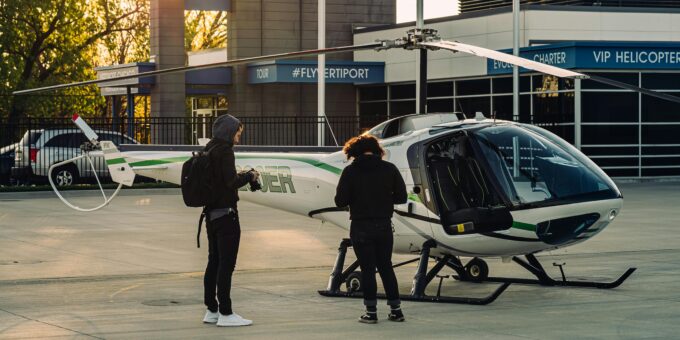
Cybersecurity is no longer a secondary concern in aviation—it has become a mission-critical priority, especially in VIP aviation, where private jets transport high-profile individuals, government officials, and corporate leaders. The wealth of sensitive information and advanced technology onboard makes private aviation a prime target for sophisticated cybercriminals. Building a future-proof cybersecurity strategy for VIP aviation means not only protecting today’s systems but also anticipating tomorrow’s threats.
In this article, we’ll explore the current risks facing VIP aviation, the best practices for designing a robust defense, and how operators can future-proof their cybersecurity posture to protect both passengers and aircraft.
Understanding Cybersecurity in VIP Aviation
Cybersecurity in VIP aviation is far more complex than in commercial airlines. While commercial aviation deals with large-scale operations, private jets handle high-value passengers whose data, travel routes, and even conversations can attract cyber espionage attempts. A breach can compromise not just personal safety but also national security if high-ranking officials are involved.
Cybersecurity in aviation encompasses:
-
Aircraft Systems Security: Ensuring avionics and communication systems remain uncompromised.
-
Passenger Data Protection: Safeguarding travel itineraries, biometric data, and financial transactions.
-
Operational Continuity: Preventing cyberattacks that can ground flights or disrupt operations.
- Why VIP Aviation is a Prime Target
VIP aviation is a magnet for cybercriminals for several reasons:
-
High-value passengers: Executives, celebrities, and political leaders are lucrative targets.
-
Sensitive data: Confidential business negotiations often occur onboard.
-
Luxury systems: Onboard internet, entertainment, and IoT devices create attack surfaces.
-
Geopolitical motives: Nation-state hackers may target private flights for intelligence.
The consequences of a successful attack can range from financial theft to national security breaches, making it clear why cybersecurity must be future-ready.
FAQs
What makes VIP aviation more vulnerable to cyberattacks than commercial aviation?
VIP aviation is a prime target because it deals with high-net-worth individuals, executives, and government officials. Their sensitive data, private itineraries, and real-time communications make them attractive to hackers and even state-sponsored cyber adversaries.
How can a private jet operator ensure aircraft systems are secure?
Operators should implement strong firewalls between passenger Wi-Fi and avionics, conduct regular penetration testing, and update avionics software through trusted vendors. Encryption of satellite communication channels is also critical.
Is Zero Trust architecture practical in VIP aviation?
Yes, Zero Trust is highly relevant. It ensures that every access request—whether from crew, ground staff, or third-party vendors—is continuously verified before access is granted, reducing risks from insider threats or compromised accounts.
What role does crew training play in cybersecurity?
The crew is often the first line of defense. Training them to recognize phishing attempts, social engineering tactics, and suspicious digital behavior is as vital as deploying firewalls or encryption systems.
Are cyber insurance policies worth it for VIP aviation?
Cyber insurance can help mitigate financial risks in case of a cyberattack. While it doesn’t prevent breaches, it covers damages like data recovery, legal fees, and in some cases, ransom payouts, making it a smart layer in a future-proof cybersecurity strategy.
What are the top future threats to VIP aviation cybersecurity?
Upcoming risks include quantum computing threats that can break current encryption, AI-driven cyberattacks capable of adapting in real-time, and sophisticated supply chain compromises targeting aircraft software and hardware vendors.
You Can Also Read : How to Manage Cybersecurity Risks in Connected Luxury Jets
In today’s interconnected world, building a future-proof cybersecurity strategy for VIP aviation is not an option—it’s a necessity. With private jets carrying some of the world’s most influential individuals, the stakes are exceptionally high. Protecting passengers, sensitive data, and operational systems requires a layered, proactive, and adaptable defense.
From securing avionics and communication systems to enforcing Zero Trust policies, training crews, and ensuring regulatory compliance, operators must anticipate evolving cyber threats. Emerging technologies like AI and blockchain will play an increasing role, but human vigilance and collaboration across stakeholders remain at the core of effective defense.
Ultimately, the aviation industry’s ability to safeguard VIP flights will rest on its commitment to continuous monitoring, innovation, and cultivating a culture where cybersecurity is everyone’s responsibility.